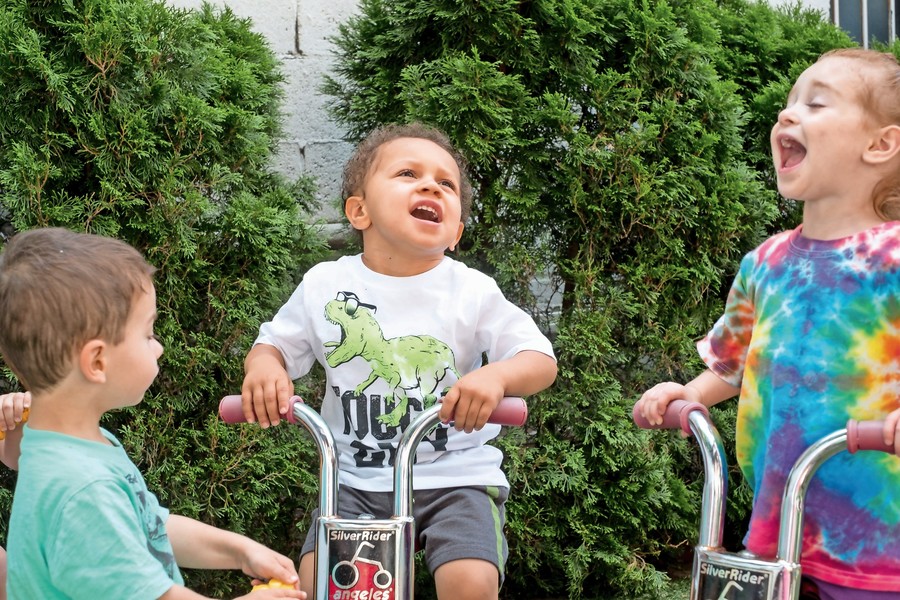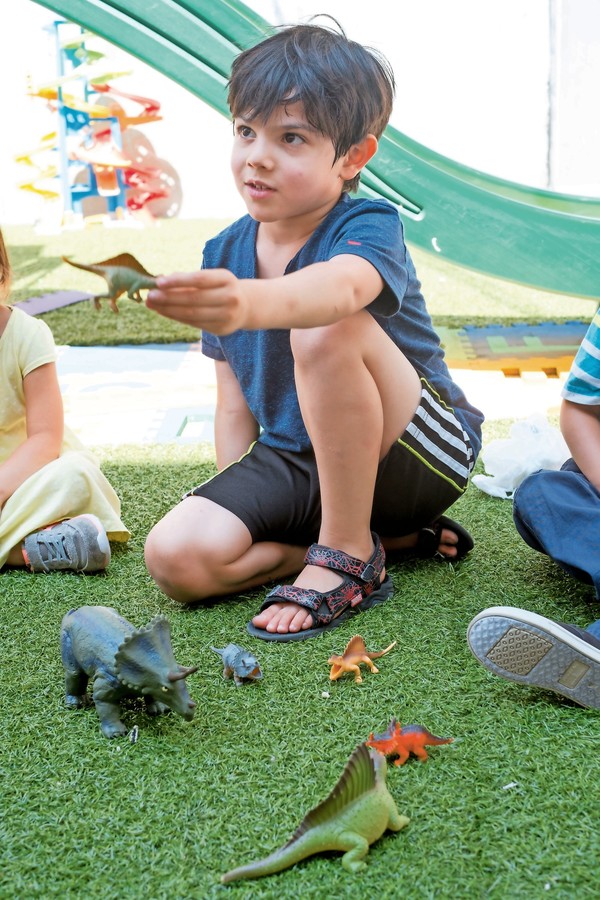Squeezed by day care cost, a mom has her own solution
When Rodica Chiacu was searching for day care for her youngest daughter in 1997, she stumbled across The Riverdale Y and was shocked by how much they were going to charge her: $10,000 per year.
“Me and my husband were just two immigrants, two workers, we couldn’t afford that,” Chiacu said.
If only she knew that, by today’s standards, that price would have been a bargain.
Nowadays, the average New Yorker spends about $14,200 annually on infant care — more than $1,000 per month — according to the Economic Policy Institute. That’s $7,000 more than the average college tuition for a four-year, in-state institution.
With a mortgage and an older daughter in private school, Chiacu eventually settled on a day care center for her youngest child so she could work. Unhappy and dissatisfied with the service, she told herself that one day she was going to open her own safe, affordable daycare in Riverdale.
Fifteen years later, in 2013, she did just that, starting the Rodi Daycare Center on Netherland Avenue. There she cares for 19 children between the ages of 2 and 5, with prices starting at $275 per week. But remembering how she struggled earlier in life, Chiacu doesn’t hold her parents to a strict payment plan. Instead, many pay weekly, some biweekly, and other monthly. Whatever works best for their family is what works for Chiacu.
Yonit Yermish Sedana sent both of her children to Rodi, in large part because of its affordability.
“Of course we make sacrifices,” Sedana said. “We haven’t been on vacation for over a year. It’s never easy, but they made it easier.”
Emily Shapiro, a marriage and family therapist at NYC Therapy Group in Riverdale, recently ran a support group for mothers in the area. She recalled the struggle for her members to work and provide care for their infants. One mom in the group was working part-time and hiring a babysitter, while another was relying on her mother-in-law to watch her child when she was at the office.
“It’s very often the case that they’re barely breaking even,” Shapiro said of parents who work and send their child to day care or seek outside help.
Besides financial concerns, another source of anxiety for parents is the cultural tension of whether children are better off in a day care or at home with the family, Shapiro noted. In her experience, she finds that mothers — at least in New York — prefer individualized care through a nanny rather than a day care center if they can afford it.
“That’s why day care that is run out of someone’s home is very popular,” Shapiro said. “It feels culturally comfortable and acceptable to have your children there.”
Niva Marmer, a stay-at-home mother of two, decided to send both of her children to Rodi part-time because of the social aspect of the center. When her older son was 3, Marmer realized he wasn’t connecting with other kids at the playground — it seemed like he always wanted to be with adults.
That’s when she decided to send him to Rodi for three or four hours a day.
“My son used to stand by the door and couldn’t wait until he could go to Rodi,” Marmer said. Her daughter, Maya, also goes to the center.
Chiacu was a kindergarten teacher in Romania, and when she settled in Riverdale, attended Bronx Community College to receive an associate’s degree in early childhood education. Her two teachers at Rodi both have master’s degrees in the subject.
The team at Rodi even sends daily updates to every parent with what lessons were taught so that they can continue the education at home. Rodi also brings in Zumba instructors and a musician for the kids once a week.
Chiacu’s determination to keep parents involved in the process is in large part due to her own experiences as a working mother. When she and her husband came to the United States with one suitcase, they were squeezed for child care options.
She does not want her clients to feel that way.
“I was scared to lose my job,” Chiacu said. “You don’t want to take a chance to lose your job these days, because it’s only a couple of years. Children go to school, they grow up so fast.”









